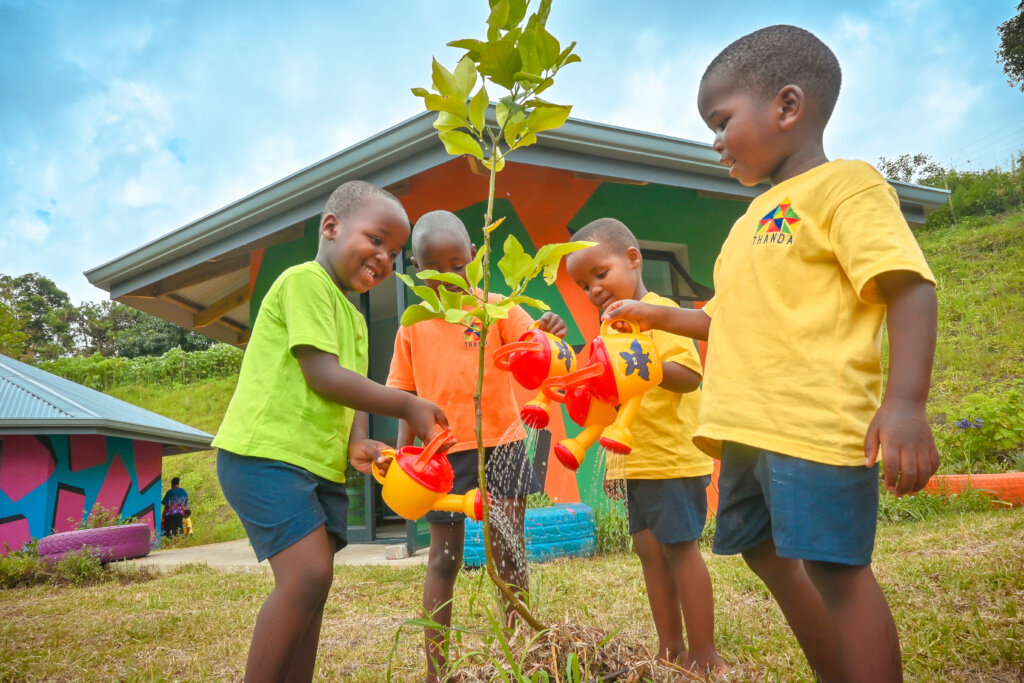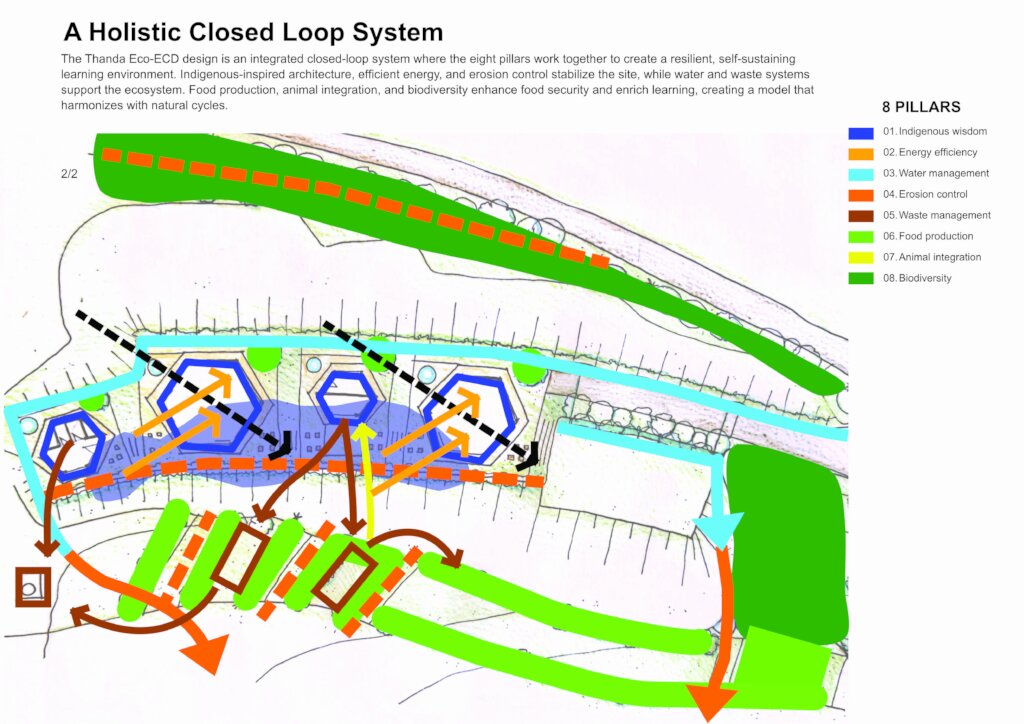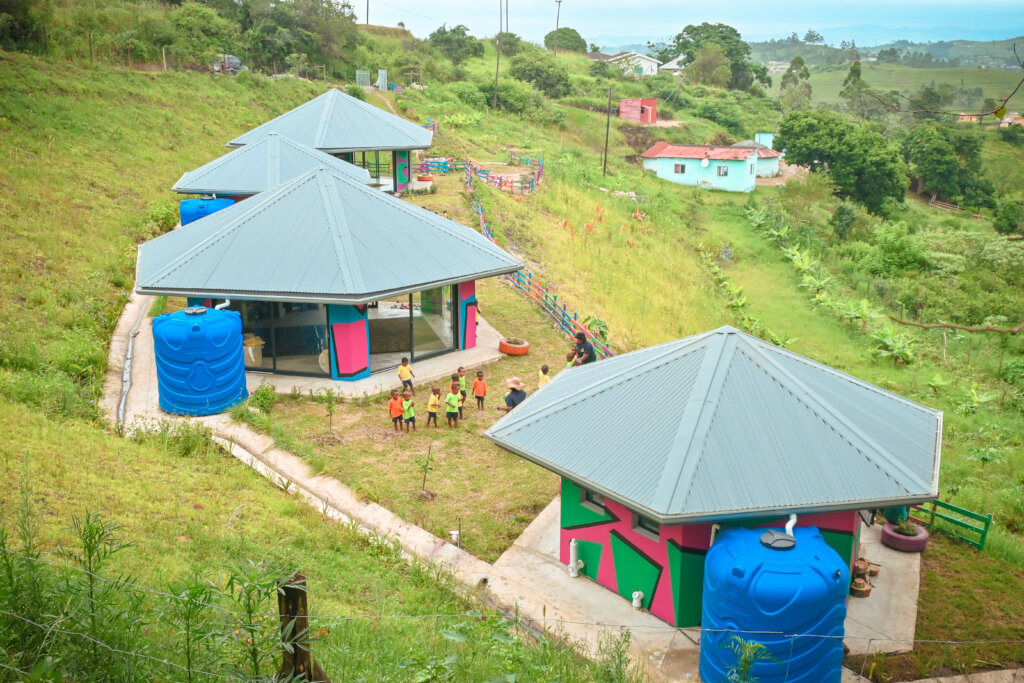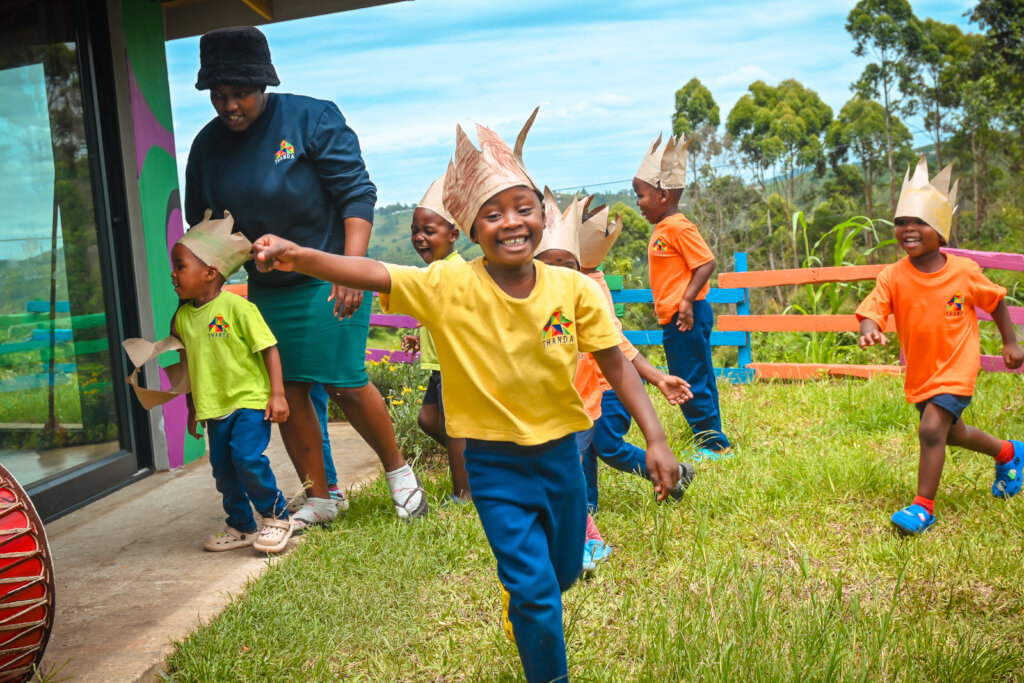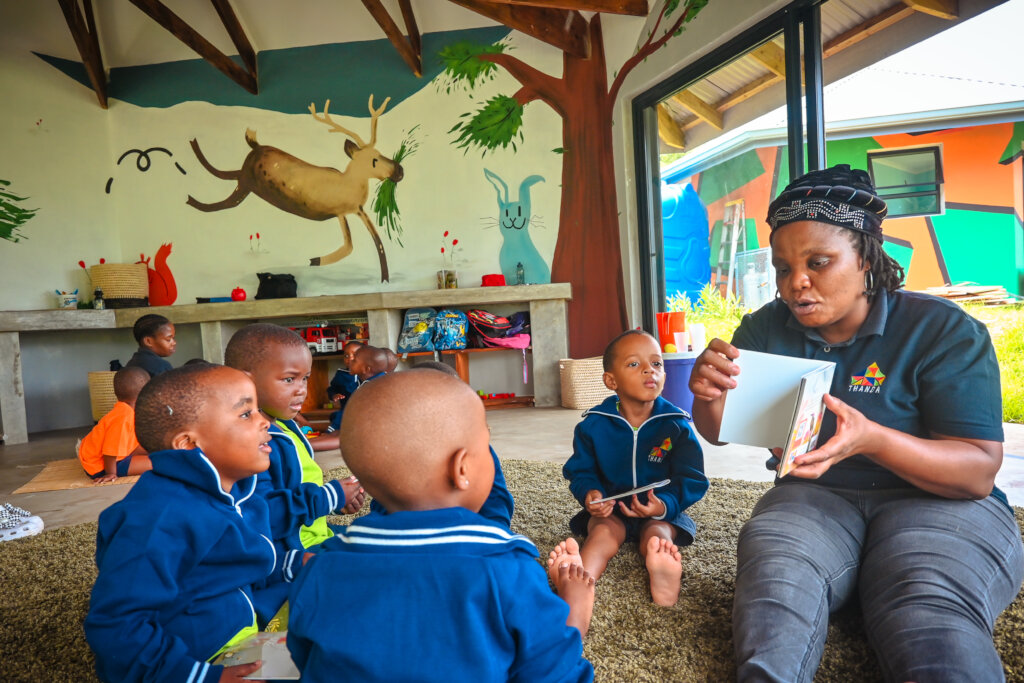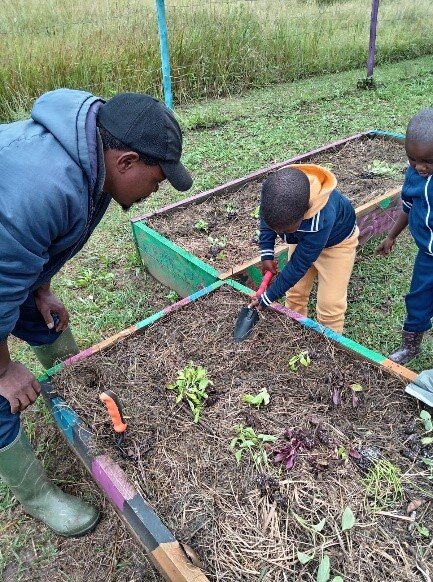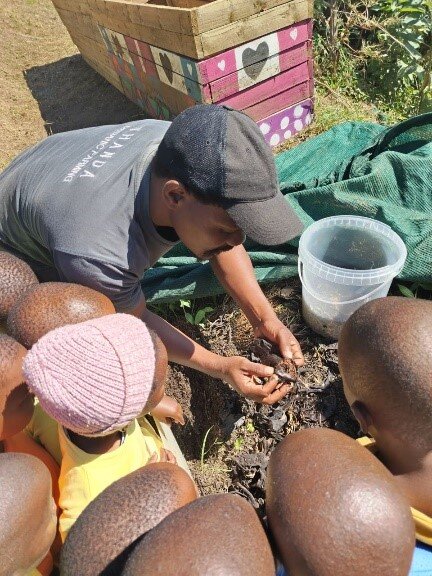By Candice McGregor | Reports and Communications Manager
The first half of 2025 has been very BUSY across all of our programmes. Thanda is always evolving and one of the ways in which we are doing this consistently is through introducing sustainable, eco-friendly interventions wherever possible.
Eco ECD at Umkhumbini
One of the ways we have expanded our offering in 2025 is with the opening of our Mkumbini Eco ECD. We spent 2024 building this site and in 2025 doors were officially opened to this Satellite ECD (formerly a Fun Foundations group). Created through a rigorous design and research process, development of Thanda’s Eco ECD was a collaborative effort to create an educational environment that models resilience in the face of climate uncertainty. Thanda’s Eco-ECD draws on principles from ecological design, traditional knowledge, and sustainability science to create an adaptable and enduring space for young learners that supports the natural environment. This project is a testament to the impact that thoughtful, systemic design can have on education—fostering holistic learning environments that are comfortable, inspiring, culturally-appropriate, self-sufficient, resource-efficient, and climate-resilient.
At the core of Thanda’s approach is a “closed-loop” model—a design system grounded in ecological principles where resources such as energy, water, and waste are continuously reused and regenerated. Aiming to withstand climate extremes such as droughts and storms, while also creating an enriching environment for children, the design’s durability and responsiveness to environmental challenges reflect an effort to integrate resilience as a lived experience for young learners and teachers alike.
The children at Mkumbini Eco ECD love the beautiful classrooms, which are light and airy. Large windows look out onto the rolling hills and the extensive food forest below. The children are thriving, immersed in natural learning experiences all around them. Our farming team has introduced laying hens, a vegetable garden, compost heap, seedling nursery, and worm farm on site, with the benefit of fresh eggs for the children and exposure to all these elements for a rich and engaging learning environment. At the moment we are working to ensure that children will be involved in all of these parts of the ecosystem as part of their daily learning.
We have also had other educational organisations show interest in the model and we are thrilled to see that our blueprint is inspiring thoughts of implementation of sustainable, climate-resilient practices in education.
ECO elements at other ECDs
In 2025, we have also been taking small steps at our other ECDs to make them more environmentally friendly and to introduce elements to help immerse our children in the natural environment. These elements include replanting and maintaining veggie gardens (including hands on learning about how to create and maintain worm farms), planting a variety of sensory stimulating plants outside and around the classrooms (like basil, lavender and rosemary) and also using spekboom at some of the classrooms to create a natural perimeter fence and act as a carbon sink.
With climate resilience a real and important consideration, we look forward to be able to offer more of these kinds of additions for the benefit of the children’s learning experiences and the local eco-system as time goes on.
THANK YOU FOR YOUR SUPPORT. WITHOUT YOU NONE OF THIS WOULD BE POSSIBLE.
Project reports on GlobalGiving are posted directly to globalgiving.org by Project Leaders as they are completed, generally every 3-4 months. To protect the integrity of these documents, GlobalGiving does not alter them; therefore you may find some language or formatting issues.
If you donate to this project or have donated to this project, you can receive an email when this project posts a report. You can also subscribe for reports without donating.
Support this important cause by creating a personalized fundraising page.
Start a Fundraiser